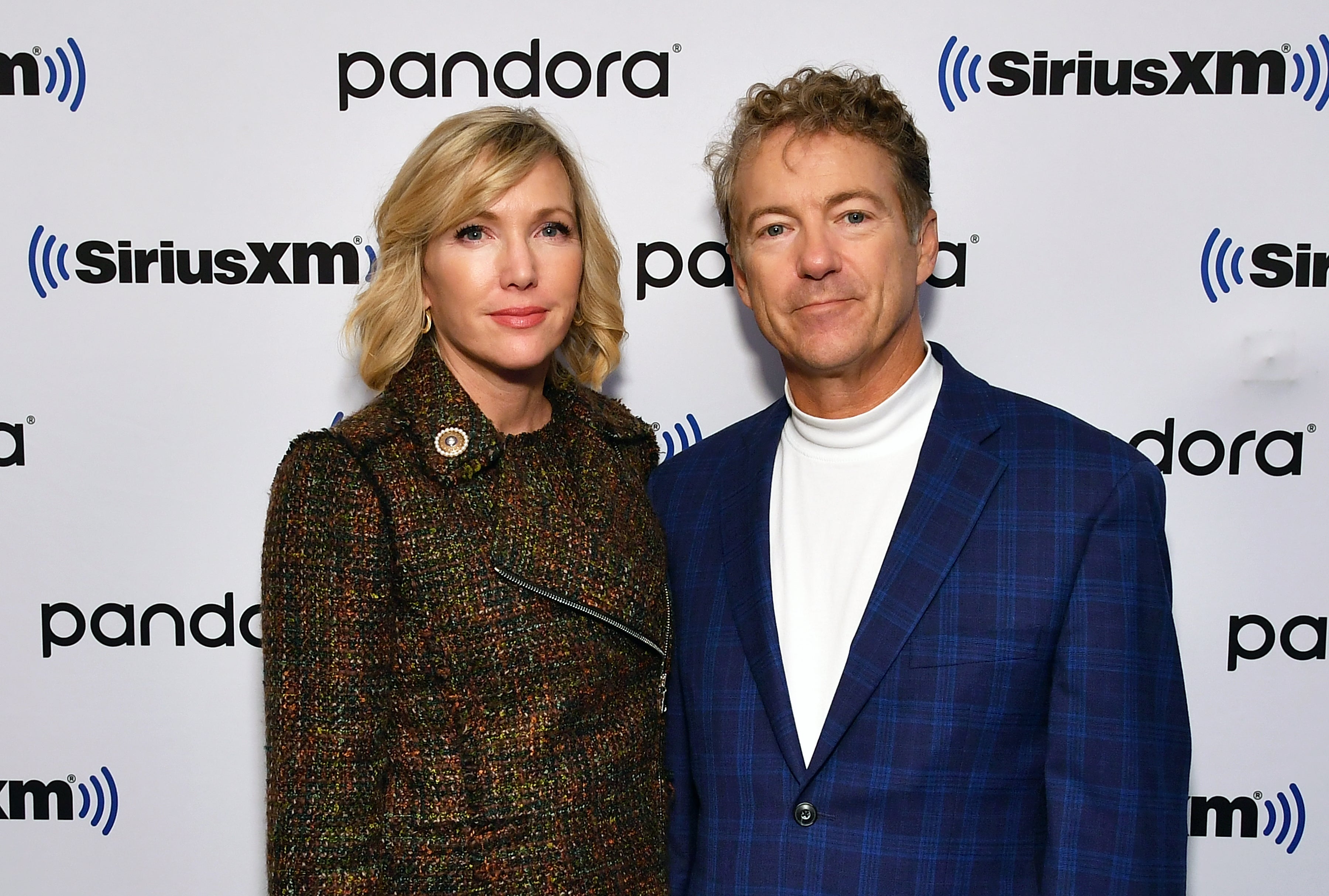Rand Paul and the Covid drug stocks everyone should know about
Alexandria Ocasio-Cortez described the news about the latest twist in Paul’s Covid story as ‘wild’


Your support helps us to tell the story
From reproductive rights to climate change to Big Tech, The Independent is on the ground when the story is developing. Whether it's investigating the financials of Elon Musk's pro-Trump PAC or producing our latest documentary, 'The A Word', which shines a light on the American women fighting for reproductive rights, we know how important it is to parse out the facts from the messaging.
At such a critical moment in US history, we need reporters on the ground. Your donation allows us to keep sending journalists to speak to both sides of the story.
The Independent is trusted by Americans across the entire political spectrum. And unlike many other quality news outlets, we choose not to lock Americans out of our reporting and analysis with paywalls. We believe quality journalism should be available to everyone, paid for by those who can afford it.
Your support makes all the difference.Rand Paul is a laugh-a-minute at the moment, fans of the Kentucky senator will be glad to hear. Hot on the heels of being suspended from YouTube for publishing a video that claimed masks are ineffective against preventing the transmission of Covid – and where else to get your medical advice on Covid than the first senator who tested positive for the virus in the US and who used the Senate gym while positive? – Paul has revealed some interesting financial information this week. Less charitable people might even call it damning.
It turns out that the senator’s wife Kelley Paul bought stock in a drug used to treat Covid back in February 2020, just before the WHO declared Covid a global pandemic and countries across the world went into lockdown. According to reporting by The Washington Post, Kelley Paul, a freelance writer, invested between $1,000 and $15,000 in stocks of Gilead Sciences which produces the drug remedesivir, an antiviral used in the treatment of Covid. Despite the fact that the Pauls had a 45-day deadline to declare such financial dealings, Rand Paul only filed recently, 16 months late.
Many have said that it’s strange Kelley Rand might want to financially back antivirals like remdesivir, considering how her husband repeatedly played down the seriousness of the pandemic. But let’s remember that Republicans seem to have a particular fondness for that medication. Back when we had even less of an idea than we have now about Covid treatments, remdesivir was considered very promising. Though he preferred to personally tout the malaria drugs chloroquine and hydroxychloroquine as his favorite potential treatments, Donald Trump also mentioned remdesivir repeatedly during press appearances in 2020. This led to an explosion of interest in all of those drugs from the general public. And it appears that Trump himself has or had shares in remdesivir, according to his most recent financial filings.
Trump was far from alone in believing in remdesivir. The FDA approved it as its first Covid treatment. Trump’s doctors provided him with it when he caught Covid himself. The belief ran deep. But subsequently – just like with hydroxychloroquine – most studies have found that remdesivir is useless for Covid treatment. The WHO now recommends that people with severe Covid stay away from remdesivir, and says that there is no evidence it will work.
It’s much the same story with Regeneron, an experimental antibody cocktail that Trump also touted as a miraculous cure, also was treated with when he went down with Covid, and also owned shares in. The only difference is that Regeneron – and monoclonal antibodies in general – seem a little more effective against serious cases of Covid. But they don’t seem as effective as other, cheaper drugs like dexamethasone.
This is a tale of two healthcare systems. In one – where profit and innovation rule – people and companies cash in as soon as a new disease takes hold. In this system, creating a novel drug makes sense because it can be trademarked and then marketed across the world as the pandemic grows. One might also say that buying stocks in such companies implies you believe the pandemic will grow, and the disease in question will remain a problem for quite some time – even if you’re saying otherwise to the people you represent in Congress. For her part, Democratic Representative Alexandria Ocasio-Cortez has said it’s “absolutely wild” that members of Congress can buy and sell individual stocks at all.
In the other system, of course, the name of the game is keeping costs down. Repurposing cheap, generic drugs until you find something that works is more efficient and certainly more desirable. That’s why the UK’s NHS has been responsible for finding a lot of the steroidal drugs which are now widely used to treat Covid, following multiple trials which sought to do just that.
And then there are the personal effects of being a Kelley Paul or a Donald Trump in a system that privileges profitability. You talk the talk, and then you walk the walk. You downplay Covid, then you catch it. Once you’ve caught it, you take the drugs you gave your financial backing. Then someone finds out they were never really that effective at all. Never mind. You were lucky. You’re a highly paid, highly visible politician with some of the best healthcare in the world. You’ll be fine. But will it be the same for the people you represent?
Join our commenting forum
Join thought-provoking conversations, follow other Independent readers and see their replies
Comments